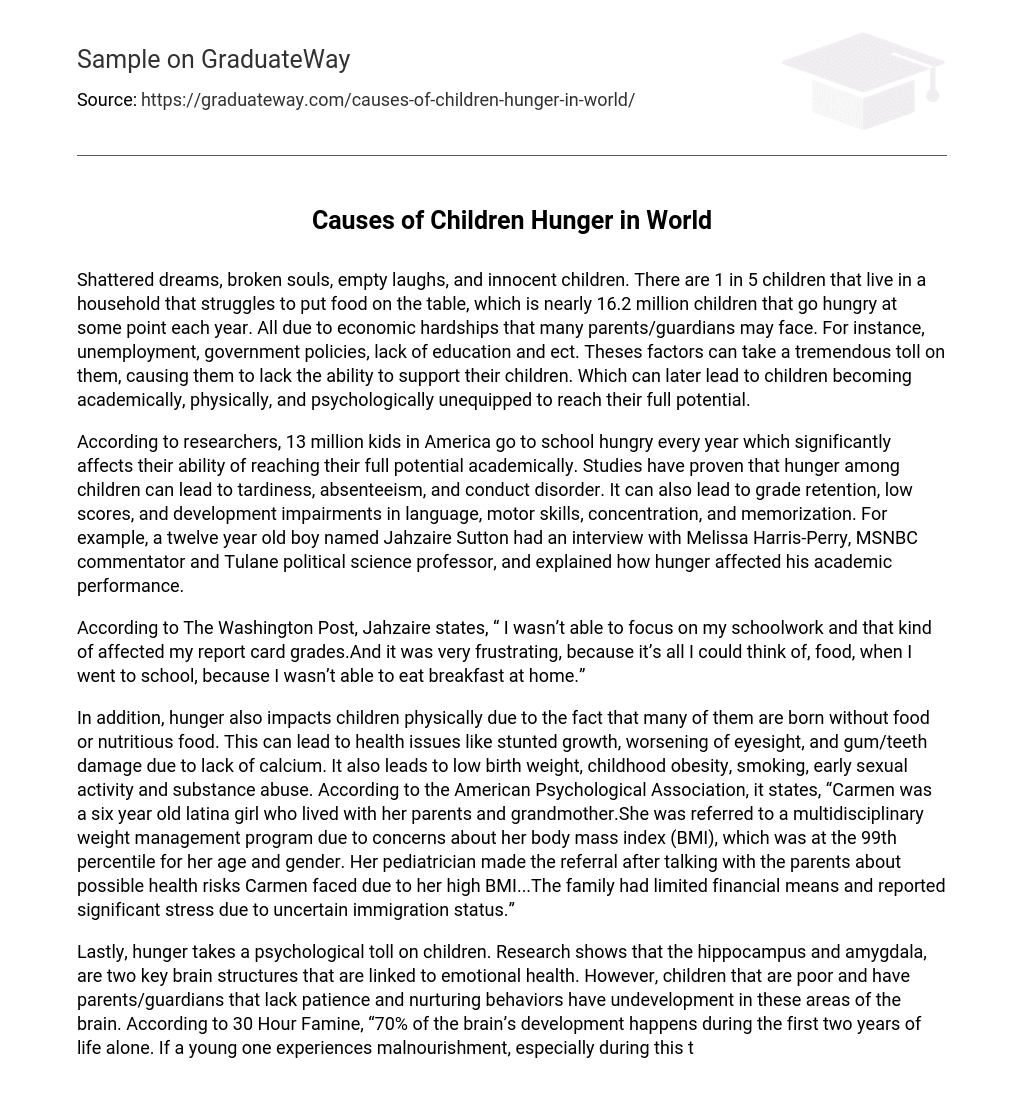Shattered dreams, broken souls, empty laughs, and innocent children. There are 1 in 5 children that live in a household that struggles to put food on the table, which is nearly 16.2 million children that go hungry at some point each year. All due to economic hardships that many parents/guardians may face. For instance, unemployment, government policies, lack of education and ect. Theses factors can take a tremendous toll on them, causing them to lack the ability to support their children. Which can later lead to children becoming academically, physically, and psychologically unequipped to reach their full potential.
According to researchers, 13 million kids in America go to school hungry every year which significantly affects their ability of reaching their full potential academically. Studies have proven that hunger among children can lead to tardiness, absenteeism, and conduct disorder. It can also lead to grade retention, low scores, and development impairments in language, motor skills, concentration, and memorization. For example, a twelve year old boy named Jahzaire Sutton had an interview with Melissa Harris-Perry, MSNBC commentator and Tulane political science professor, and explained how hunger affected his academic performance.
According to The Washington Post, Jahzaire states, “ I wasn’t able to focus on my schoolwork and that kind of affected my report card grades.And it was very frustrating, because it’s all I could think of, food, when I went to school, because I wasn’t able to eat breakfast at home.”
In addition, hunger also impacts children physically due to the fact that many of them are born without food or nutritious food. This can lead to health issues like stunted growth, worsening of eyesight, and gum/teeth damage due to lack of calcium. It also leads to low birth weight, childhood obesity, smoking, early sexual activity and substance abuse. According to the American Psychological Association, it states, “Carmen was a six year old latina girl who lived with her parents and grandmother.She was referred to a multidisciplinary weight management program due to concerns about her body mass index (BMI), which was at the 99th percentile for her age and gender. Her pediatrician made the referral after talking with the parents about possible health risks Carmen faced due to her high BMI…The family had limited financial means and reported significant stress due to uncertain immigration status.”
Lastly, hunger takes a psychological toll on children. Research shows that the hippocampus and amygdala, are two key brain structures that are linked to emotional health. However, children that are poor and have parents/guardians that lack patience and nurturing behaviors have undevelopment in these areas of the brain. According to 30 Hour Famine, “70% of the brain’s development happens during the first two years of life alone. If a young one experiences malnourishment, especially during this time frame. The brain could become damage forever.” Which could lead to children developing depression, anxiety, and low self-esteem. As well as begin incapable of coping with stress.





